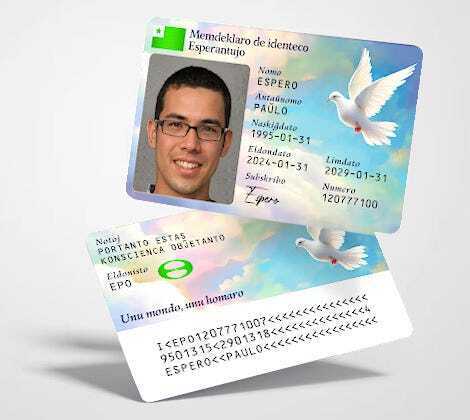Note: This is not a Sovereign Citizen thing. It’s intentionally anational: It doesn’t matter where you were born or who you were born to, everyone should have the same chances. Similar to Fridtjof Nansen’s stateless passports in the 1920s or Garry Davis’s world citizen passports.
A philosophical project for an open source non-government ID: https://memdeklaro.github.io/
Article: https://medium.com/@memdeklaro/self-declaration-of-identity-memdeklaro-de-identeco-5fd96231da44
There’s no central database, just a self-declaration of your (self-chosen) name, birth date, photo and signature that you print yourself.
Looks similar to the Digitalcourage ID (https://shop.digitalcourage.de/gadgets/lichtbildausweis-mit-selbst-waehlbaren-daten.html) and World Citizen Passport (https://worldcitizengov.org/what-is-the-world-passport/).



Sorry if I’m being thick, but is there any use to these other than making a statement?
Unfortunately not. It is just a philosophical statement. The Digitalcourage IDs and World Passports generally aren’t accepted either (e.g. to rent an apartment, receive mail, join a gym), and the UN no longer issues Nansen passports.
There is some info about access to necessities without government ID here: https://vonupodcast.com/know-your-customer-kyc-the-rarely-discussed-danger-guest-article-audio/ (you can skip to this section “KYC-free alternatives help everyone”) but most people support government ID requirements nowadays “for safety reasons”, even if the person is unable to get government ID (e.g. their birth wasn’t registered as a child or they are stateless but no country agrees to issue a stateless passport for them).
There are some related articles in the “Further Reading” section on the page https://memdeklaro.github.io/. I was reminded of Hannah Arendt’s work about rightlessness but I can’t find the links right now.